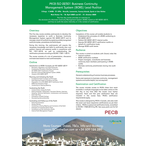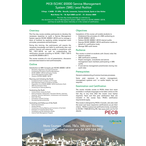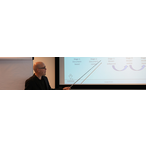The Modern and the Postmodern (Part 2)
Leider sind die Kurse von Coursera (CC) nicht mehr auf Springest vertreten.
- MwSt. MwSt.-befreit
- kompletter Preis Kompletter Preis. Es fallen keine zusätzlichen Kosten mehr an.

- MwSt. MwSt.-befreit
- kompletter Preis Kompletter Preis. Es fallen keine zusätzlichen Kosten mehr an.

- MwSt. MwSt.-befreit
- kompletter Preis Kompletter Preis. Es fallen keine zusätzlichen Kosten mehr an.

Microsoft Modern Desktop - Windows 10 MD-100

The skills and objectives in this course cover the Microsoft Windows 10 (MD-100) certification, and will help you prepare for Microsoft 365…
- MwSt. keine Angabe zur MwSt.
- kompletter Preis Kompletter Preis. Es fallen keine zusätzlichen Kosten mehr an.
- Weitere Informationen https://media.go1static.com/image/upload/w_800/v1625423681/vryfwc5fsottuojws81b.jpg

The case for having kids | Wajahat Ali

Ted Talk: The global fertility rate, or the number of children per woman, has halved over the last 50 years. What will having fewer babies …
- kompletter Preis Möglicherweise gibt es extra Kosten, wie zum Beispiel Studienmaterial.

JavaScript Unit Testing with Jasmine

Course Overview Any IT professional or casual developer anticipating a solid understanding of how unit testing is implemented in modern Jav…
- MwSt. keine Angabe zur MwSt.
- kompletter Preis Kompletter Preis. Es fallen keine zusätzlichen Kosten mehr an.
- Weitere Informationen https://media.go1static.com/image/upload/w_800/v1564372753/qkhn2re6vzxxnvjagfh1.jpg

Hands-On Web App Pentesting

This course is designed for those looking to gain skills related to penetration testing web applications. We start by covering topics that …
- MwSt. keine Angabe zur MwSt.
- kompletter Preis Kompletter Preis. Es fallen keine zusätzlichen Kosten mehr an.
- Weitere Informationen https://media.go1static.com/image/upload/w_800/v1683866994/tua4wi2bqjihjririvrw.jpg

Network Asset Management in practice (Dutch or English)

This 3-day training course provides insight into modern network asset management, familiarises you with the concepts and practices of risk …

The Ultimate WordPress for Beginners

Discover how easy it is to build amazingly beautiful WordPress websites within a matter of minutes! This course is for students interested …
- MwSt. keine Angabe zur MwSt.
- kompletter Preis Kompletter Preis. Es fallen keine zusätzlichen Kosten mehr an.
- Weitere Informationen https://media.go1static.com/image/upload/w_800/v1691556809/dlh1gzlak0plqkvgefse.png

- MwSt. MwSt.-befreit
- kompletter Preis Kompletter Preis. Es fallen keine zusätzlichen Kosten mehr an.
- Weitere Informationen excl. BTW




